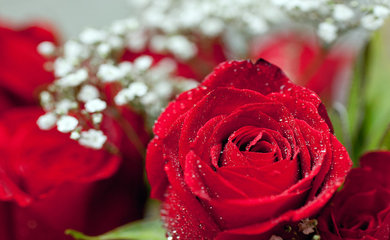I have never been one for dating shows, but I do not seem to be able to stop watching China’s extremely popular If You Are the One. I am hardly alone in this amongst Australians, which is unusual because it’s mostly UK and US shows that are the popular imports here. It’s also unexpected because If You Are the One is based on an Australian program called Taken Out, which was so bad, so very bad, that it lasted on the air for but a few weeks of sad, shallow, and sexist viewing. What, then, makes If You Are the One different, and what about it appeals to the Australian imagination in ways in which its Australian originator does not?
This is the format of If You Are the One: twenty-four women, equipped with light-fronted podia, meet a male contestant. Across several rounds of asking questions of him and short videos shot around his home, workplace, and town, the women may switch their lights to red to indicate that they are not interested in him. The man may leave without a date, or choose to leave or not leave with one last contestant with her light on, or choose between several women who have left their lights on throughout the rounds. A woman leaves the show when she gets a date or when the producers replace her, and there are several male contestants per episode. It’s super great because there’s a shared power dynamic in who gets to choose unlike, say, the one-sidedness of The Bachelor. Also unlike every Western dating show I’ve seen, If You Are the One is not about cotton candy romance, drawn-out fakery, or unrelatable scheming. Everyone involved is interested in fast and honest decision-making regarding what kind of partner they want and what they expect from life.
That’s why the show appeals to me, because I experience it as a refreshing retake on televised models of heterosexual romance. Those involved are encouraged to shape the best lives for themselves rather than to fit a tired and dehumanising script (hi, Taken Out!). Stephanie Lai wonders if part of the show’s popularity in Australia is due to the opportunity it presents to laugh at Chinese ways of speaking, to form and be confirmed in Chinese stereotypes. There is clearly an extent to which If You Are the One’s popularity in Australia is tied to a desire to gawk and laugh at this ‘curiosity’ of ‘bizarre, left-of-field’ Chinese sensibilities. Those are, respectively, quotes from Australian entertainment website The Vine and independent media site Crikey, which articles includes numerous screencaps featuring apparently amusing subtitled quotes. These perspectives fail to respect cultural difference, and the people on this show don’t say anything stranger than anything I’ve heard on an equivalent Western show. Talking to China’s Global Times, viewer Lu Di comments that foreign contestants on the show ‘are too frank and say things inappropriate for match-making talk, which makes them seem alien’. What’s bizarre, then, is contextual.
What is unclear is the extent to which If You Are The One’s Australian hype comes from a disenchantment with Australian and Western recycled models of heterosexual romance, and the extent to which viewers are recycling a fascination with China and the foreign as strange. I hestitatingly am heartened that Australian audiences have rejected the shallow fakery of the local version of this format, but have taken the Chinese version on board for three nights per week. It’ll be interesting to see how this cross-cultural conversation develops or stagnates.
Photo by RCB, licensed under a Creative Commons Attribution 2.0 Generic license

